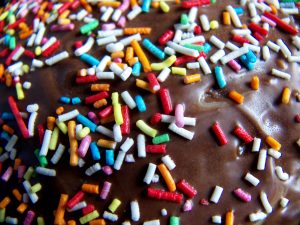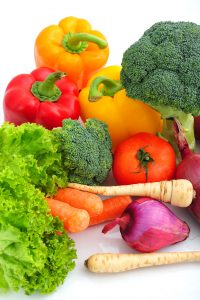Welcome to 2017! Most new year’s resolutions involve the promise to eat healthy or lose weight. All too often we hear the sentiment of ‘A calorie is a calorie. All calories are created equal’. If you listen to this common slogan weight loss should be pretty easy, right?
But is that thought process really the truth? Let’s face it, if that advice were correct all of us would be in great shape, skinny and weight loss wouldn’t be that treacherous hill that no one wants to conquer. While it is true that all calories have the same amount of energy, that rule does not apply when those calories enter the body.
Quality over quantity counts! Even a study from Harvard agrees (1). Rather than choosing foods based only on calories, think instead about choosing high-quality, healthy foods, and minimizing low-quality foods. Since the body is an elaborate system of biochemistry different foods are processed differently in the body. Even more importantly different foods have different effects on your hormones and brain centers, which control hunger, your moods, and your behaviors, especially with eating.
To illustrate this point let’s consider consuming 500 calories from cake vs 500 calories from vegetables.
After you eat cake, your gut quickly absorbs the fiber-free sugars. Because of the quick absorption your blood sugar spikes causing your body to release insulin, a hormone made by your pancreas. That insulin spike causes a cascade of numerous hormonal responses.
Why should you care about high insulin levels and hormonal responses? High insulin increases storage of belly fat, increases inflammation, raises triglycerides and cholesterol, and lowers HDL. It also raises blood pressure, can lower testosterone in men and increases your risk for chronic diseases, such as cancer.

Sugar will always delay weight loss results
But what we are really focused on here is weight loss. So how does sugar sabotage your chances for weight loss success?
Insulin effects weight loss because it increases your appetite. Insulin blocks your appetite control hormone leptin. Eventually you become more leptin resistant so the brain never gets the “I’m full” signal. No “I’m full” signal means more eating.
Fructose simply adds to this issue. Since it is processed through your liver it triggers more insulin resistance and creates prolonged insulin increases in your body. This also makes your body store food as fat in your stomach. As sugar does, fructose also affects your brain’s ability to recognize food intake and amount thus causing you to eat more.
Now let’s examine what happens in your body when you consume vegetables. They are still carbohydrates just like cake however

High Fiber, Low Sugar Choices
vegetables are composed of different things. Vegetables are high fiber low sugar carbs. High fiber low sugar carbs are slowly digested. Because of their slow digestion vegetables don’t cause the same effect on blood sugar as cake does. No sharp increase in insulin. No increased cholesterol. No increased fat storage and no negative effects on the brain. So, those hormones that tell your body to stop eating are kept in check!
Never mind the fact that sugar filled carbohydrates don’t have the appropriate vitamins and minerals either.
On your weight loss journey in the new year keep these simple facts in mind.
Quality over quantity, calories count but not in amount!
If you need a little extra guidance you can join the 3D Wellness Club, which gives you personalized tips for your goal of weight loss or eating healthy in the new year.
You can also visit 3D Health & Wellness’ website to learn more: www.thrivingin3d.com
Cynthia Schmeck, ND, MSc, NASM-CPT
- The Nutrition Source. Harvard T.H. Chan: School of Public Health. https://www.hsph.harvard.edu/nutritionsource/best-diet-quality-counts/

Recent Comments